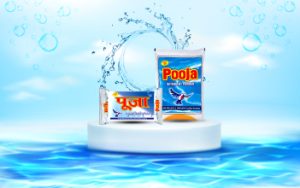

Soap and detergent are two common household items that we often use interchangeably, yet they have significant differences in their composition, functions, and environmental impacts. Understanding these disparities can help us make informed choices about which product to use for specific cleaning tasks. Let’s delve into the details of what sets soap and detergent apart.
Soap, a traditional cleansing agent, is typically made from natural ingredients such as fats or oils combined with an alkaline substance like sodium hydroxide. This chemical reaction produces soap molecules with a hydrophilic (water-attracting) head and a lipophilic (oil-attracting) tail. On the other hand, detergents are synthetic compounds derived from petrochemicals. They contain surfactants, molecules with both hydrophilic and lipophilic properties, which enable them to effectively disperse and suspend dirt and grease in water.
Soap has been used for centuries due to its natural origins and gentle cleansing properties. Its basic composition consists of fatty acids from animal or vegetable oils, saponified with an alkaline substance. When mixed with water, soap molecules form micelles, tiny structures that trap dirt and oil, allowing them to be rinsed away. Soap is biodegradable and suitable for a variety of cleaning tasks, including laundry, dishwashing, and personal hygiene.
Detergents, in contrast to soap, are synthetic compounds engineered to tackle tough stains and dirt effectively. They were developed as a response to the limitations of soap, particularly its tendency to form scum in hard water. Detergents contain surfactants that penetrate and disperse soil and grease, suspending them in water for easy removal. Additionally, detergents often include enzymes and other additives to enhance their stain-fighting capabilities, making them indispensable for modern cleaning needs.
While both soap and detergent are effective cleansers, they have distinct strengths and limitations. Soap performs well in soft water conditions and is gentle on fabrics and skin. However, it may lose its efficacy in hard water, where it can form insoluble compounds that reduce cleaning power. Detergents, on the other hand, are formulated to work efficiently in both soft and hard water, making them versatile options for various cleaning tasks, from removing tough stains on clothing to cutting through grease on dishes.
Considering the environmental impact of cleaning products is crucial in today’s world. Soap, derived from natural ingredients, is generally biodegradable and less harmful to aquatic ecosystems. However, the traditional soap-making process can be resource-intensive, requiring significant quantities of water and energy. In contrast, detergents, while often containing synthetic compounds, can be formulated to be more environmentally friendly, using biodegradable surfactants and eco-friendly packaging.
When deciding between soap and detergent, it’s essential to consider factors such as water hardness, cleaning efficiency, and environmental impact. For everyday cleaning tasks, detergents are often the preferred choice due to their versatility and effectiveness across different water conditions. However, for individuals seeking a more natural or eco-friendly option, traditional soap made from natural ingredients may be preferable, particularly for personal hygiene products.
In conclusion, while soap and detergent serve the same purpose of cleaning, they differ significantly in their chemical composition, cleaning efficiency, and environmental impact. Soap, with its natural origins and gentle cleansing properties, remains a timeless choice for various household tasks. Meanwhile, detergents, with their synthetic formulations and powerful cleaning capabilities, have become essential for modern cleaning needs. By understanding the differences between soap and detergent, consumers can make informed choices that align with their cleaning preferences and environmental values.
1800 121 1626